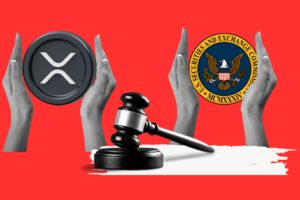Ripple's Sovereign Rights at Stake: U.S. Supreme Court Requirement Sparks Legal Debate – Coinpedia Fintech News

Attorney Jeremy Hogan recently took to social media, expressing his anticipation for a legal battle that could have significant implications for the sovereign rights of foreign countries. The focus of this speculation is the ongoing legal proceedings involving Ripple.
According to Hogan, the U.S. Supreme Court has emphasized that Ripple’s sales must have occurred “in the U.S.” or, at the very least, on a U.S. exchange. This raises questions about how the Securities and Exchange Commission (SEC) will navigate this requirement with its designated expert. In response to these developments, XRP lawyer John Deaton shared his perspective, asserting that Ripple is unlikely to come close to paying the proposed $770 million penalty.
Deaton, who often shares developments on legal matters related to cryptocurrencies, criticized the SEC’s stance, highlighting the regulator’s pursuit of disgorgement related to XRP sales in the U.K., Japan, Switzerland, and other jurisdictions. He pointed out that the Supreme Court’s Morrison decision excludes such sales, especially considering that XRP is classified as a non-security in these regions.
The Financial Conduct Authority (FCA) in the U.K. and Japan’s Financial Services Agency (FSA) have recognized XRP as an exchange/utility token rather than a security token. Deaton emphasized that selling XRP in these jurisdictions is deemed 100% legal, as declared by their respective regulators. Despite this, the SEC believes it can seek disgorgement from these sales, a position Deaton confidently dismisses as untenable.
Deaton argued that the court’s goal, in this case, is not to punish Ripple, as it is not a fraud case. He suggested that the SEC must demonstrate harm to investors after accounting for non-U.S. sales, potentially exceeding 90%, and deducting sales to accredited investors. Deaton contended that many institutional sales were likely at a lower XRP price than the current market value, resulting in no harm.
He also raised concerns about excluding On-Demand Liquidity (ODL) transactions from the disgorgement calculation, emphasizing the minimal investment nature of these transactions. Even if ODL transactions were considered, Deaton argued that the brief ownership of XRP in these cases renders harm nonexistent.
Source: Read Full Article
